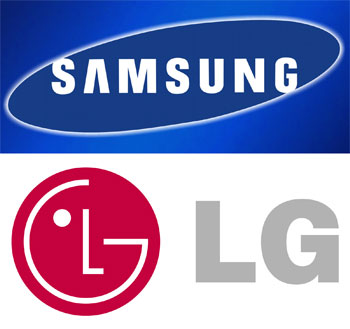What with LG and Samsung being the world’s largest OLED panel makers, it’s no surprise that the two firms have had a falling out over the hotly anticipated display technology. The resulting war of words between the two led to both companies suing one another over patents covering the Organic Light Emitting Diode (OLED) and Liquid Crystal Display (LCD) technologies that each uses in its TVs and other devices.

However, after slugging it out in court for just over a year, the two South Korean consumer electronics giants have called an abrupt halt to proceedings, announcing a ceasefire agreement after a deal was struck between the CEOs of both companies.
The OLED display patent war began in earnest back in September of last year, when the two manufacturers fired off a series of lawsuits against each other as they raced to get their OLED televisions onto the market first. But unlike in the USA, where Apple and Samsung have been slugging it out over patents for years, common sense seems to have prevailed with Korea’s top TV makers coming to the conclusion that any legal spats are far more trouble than they’re worth.
As the world’s leaders in OLED display technology, both companies seem to realise that the technology can give them a serious competitive advantage over rival companies in the television, mobile and computer markets. While OLED TVs are the obvious example, both firms have also been exploring ideas like flexible OLED screens for mobile devices, as well as OLED smart watches and various other uses for the technology. Hence, the two firms have now agreed to focus on pushing OLED forward rather than holding it back, even hinting at possible future cooperation.
“We’ve agreed that we should concentrate on cementing our leading position in the OLED market rather than waste time in consuming patent battles,” said a spokesperson for Samsung Display.
“Both us and Samsung have agreed that upgrading our competitiveness is far more important,” added a spokesperson for LG.
That Samsung and LG have come to an agreement is refreshing news, and now the challenge for the two companies will be to keep their relationship genial whilst trying to outdo each other at the same time. In such intensely competitive markets like the HDTV and mobile industries, that won’t be easy – but for now at least, it looks as if South Korea’s top electronics firms are at least willing to give it a try.
Source: Wall Street Journal